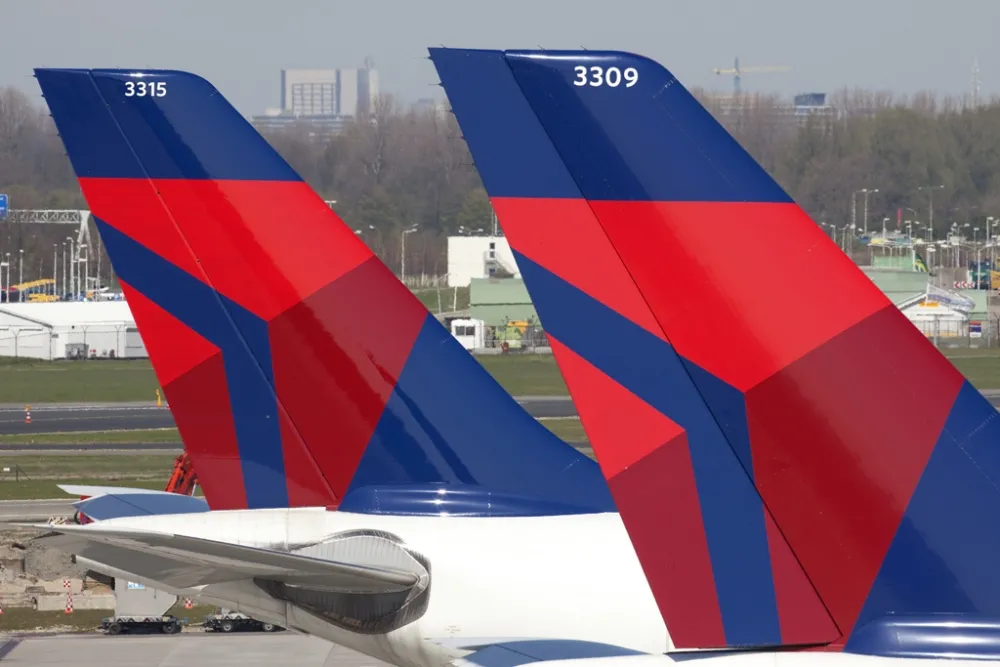
Delta in deal for up to 200 Airbus A321neos
Dec 14, 2017

Delta Air Lines has reached a significant agreement to acquire up to 200 Airbus A321neo aircraft, enhancing its fleet with modern and fuel-efficient planes. This deal underscores Delta's commitment to sustainability and operational efficiency while addressing growing passenger demand. The A321neo is known for its advanced technology, offering lower emissions and reduced fuel consumption compared to older models. With this acquisition, Delta aims to strengthen its position in the competitive airline market and improve its service offerings. The deal reflects the airline's strategic vision for future growth and modernization of its operations.
Delta Air Lines has recently made headlines by confirming a major deal to acquire up to 200 Airbus A321neo aircraft. This significant investment marks a pivotal moment in Delta’s strategy to modernize its fleet and enhance operational efficiency. With the A321neo known for its fuel efficiency and range, this move is expected to bolster Delta’s competitive edge in the aviation market.
Details of the Airbus A321neo Deal
The agreement includes firm orders for 100 Airbus A321neo aircraft, with options for an additional 100 units. This scalable approach allows Delta to adjust its fleet size based on market demand and operational needs. The A321neo is equipped with advanced technology, including new engines and aerodynamic improvements, which contribute to reduced fuel consumption and lower emissions, aligning with Delta's commitment to sustainability.
Benefits of the A321neo for Delta
Delta's acquisition of the Airbus A321neo is poised to deliver multiple benefits:
- Fuel Efficiency: The A321neo features the latest engine technology, resulting in up to 20% more fuel efficiency compared to older models, which can significantly reduce operational costs.
- Increased Range: With a range of approximately 3,500 nautical miles, the A321neo allows Delta to expand its route network, reaching new destinations that were previously unfeasible with older aircraft.
- Passenger Comfort: The A321neo is designed with passenger experience in mind, offering larger windows, quieter cabins, and improved cabin pressure that enhances comfort on longer flights.
Impact on Delta's Fleet Strategy
This deal is part of Delta’s broader strategy to modernize its fleet. By introducing the A321neo, Delta aims to replace older, less efficient aircraft with newer models that offer better performance and lower operating costs. The addition of the A321neo supports Delta's goal of achieving net-zero carbon emissions by 2050, as the new aircraft are designed to be more environmentally friendly.
Financial Implications of the Deal
The financial impact of the deal is substantial. While the exact terms of the agreement have not been disclosed, the list price for an Airbus A321neo is approximately $130 million. However, airlines often negotiate discounts based on bulk orders. The total investment could range from $13 billion to $26 billion, depending on the final number of aircraft ordered and negotiated discounts.
Market Reception and Industry Implications
Industry analysts have responded positively to Delta's decision to invest in the A321neo. The aircraft’s reputation for efficiency and reliability positions Delta well for future growth. Furthermore, this move is likely to influence other airlines to consider similar upgrades to their fleets, potentially accelerating the trend toward more sustainable aviation practices.
Delta's Commitment to Sustainability
Delta has made significant strides in its commitment to sustainability. The introduction of the Airbus A321neo is a crucial component of this commitment. By investing in fuel-efficient aircraft, Delta aims to reduce its carbon footprint and promote environmentally responsible travel. This aligns with the increasing consumer demand for greener travel options.
Comparison of A321neo with Competitors
To better understand how the A321neo stacks up against its competitors, the following table highlights the key specifications and features of the A321neo compared to the Boeing 737 MAX 8:
| Feature | Airbus A321neo | Boeing 737 MAX 8 |
|---|---|---|
| Passenger Capacity | Up to 240 | Up to 210 |
| Range | 3,500 nautical miles | 3,550 nautical miles |
| Fuel Efficiency | Up to 20% less fuel burn | Up to 14% less fuel burn |
| Cabin Width | 3.70 meters | 3.54 meters |
Future Outlook for Delta and Airbus Partnership
The partnership between Delta and Airbus is expected to flourish in the coming years. As Delta continues to modernize its fleet, the A321neo will play a significant role in enhancing operational capabilities and improving customer experience. Furthermore, this deal may pave the way for future collaborations, as Delta explores additional aircraft models to further its sustainability goals.
Conclusion
Delta Air Lines’ agreement to purchase up to 200 Airbus A321neo aircraft represents a strategic move towards fleet modernization and sustainability. With its focus on fuel efficiency, passenger comfort, and environmental responsibility, the A321neo is set to propel Delta into a new era of aviation excellence. As the aviation industry continues to evolve, Delta’s commitment to investing in advanced technology prepares it for future challenges and opportunities.
Related Articles

Explore Thailand: The Best Islands to Visit for Paradise, Adventure, and Relaxation

The Ultimate Guide to the Best Islands in Thailand for Your Next Getaway

Do babies need passports? How to get a passport for a newborn

How to get a U.S. passport fast: here’s how to expedite the process

What is Mobile Passport Control: 5 reasons why you should use it

SENTRI vs. Global Entry: A detailed guide

Do you need a passport to go to the Bahamas? Let’s find out

Do you need a passport to go to Mexico? A detailed guide

Do you need a passport to go to Canada? We got the answer

Do You Need a Passport for a Cruise: An Essential Travel Guide

Booster Seat Requirements: All the Rules to Follow in Your Rental Car

What Are the World’s Most Powerful Passports, and How Does Yours Rank?

How to Take a Passport Photo at Home: A Helpful Guide

You've got to have heart! Southwest's new livery

Your opinion: Should water be free on low cost carriers?

Young women bolder than guys as solo travellers
